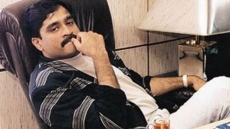Three Indian-origin ministers, including UK Home Secretary Priti Patel, have retained their posts in Prime Minister Boris Johnson’s Cabinet, which met on Tuesday ahead of the first Parliament session since the Conservative Party won a strong 80-seat majority in the General Election last week.
The newly-elected MPs and ministers returned to the House of Commons on Tuesday.
Johnson has undertaken only a very limited Cabinet reshuffle for now to fill some vacant posts, while maintaining the status quo across his top team – which he has dubbed the “People’s Cabinet”. The three Indian-origin ministers, who had won back their seats convincingly in the Tory landslide, have been retained in their posts.
Patel was back by Johnson’s side in the Commons as UK home secretary, with fellow MP Alok Sharma remaining in charge of the Department for International Development. Rishi Sunak, the son-in-law of Infosys co-founder Narayana Murthy, retains his place at the Cabinet table as Chief Secretary to the Treasury, working closely with the UK’s Pakistani-origin Chancellor, Sajid Javid.
“You ain’t seen nothing yet, folks. This is a People’s Cabinet, and we are going to working to deliver the priorities of the British people,” said Johnson, in a televised address during his first Cabinet meeting on Tuesday ahead of the Commons session.
“We must recognise that people lent us their votes at this election. It was a seismic election, but we need to repay their trust and work 24 hours a day, work flat out to deliver on it,” he said.
Johnson then used his campaign-style echo by asking his Cabinet ministers to shout out how many hospitals the government has pledged it would build and how many police officers it would hire – reflecting the key promises of the Conservative Party on the campaign trail.
In Parliament, the newly re-elected UK prime minister began his address by paying tribute to the two victims of the London Bridge terrorist attack last month before getting back to the central theme of his government – Britain’s exit from the European Union (EU), scheduled for 31 January 2020.
“We are going to get Brexit done,” he declared.
“I think this Parliament is a vast improvement on its predecessor. I would say it is one of the best parliaments this country has ever produced with more female members than ever before, with more black and minority ethnic members than ever before,” he noted.
He went on to confirm that the new government plans to table the EU Withdrawal Bill, which had failed to clear the parliamentary hurdle previously, back to the Commons on Friday for the new “people’s Parliament” to see it through.
And repeating his message of unity from his first speech from the steps of 10 Downing Street after his big win last Friday, he concluded: “And I can tell the House that after three and a half years of wrangling and division, we in this government will do whatever we can to reach out across the house to find common ground, to heal the divisions of our country, and to find a new and generous spirit in which we conduct all our political dealings with one another that will last beyond this immediate season of Christmas goodwill.”
His Brexit bill will be back this week, before Parliament breaks for Christmas, with an added clause preventing an extension to the pre-agreed transition period which is set to run until December 2020. The time had been factored in for the UK and EU to strike a new trade agreement once Britain is a non-member of the 28-member economic.
The Opposition Labour Party has criticised this clause as setting a pressure clock on the trade negotiations.
